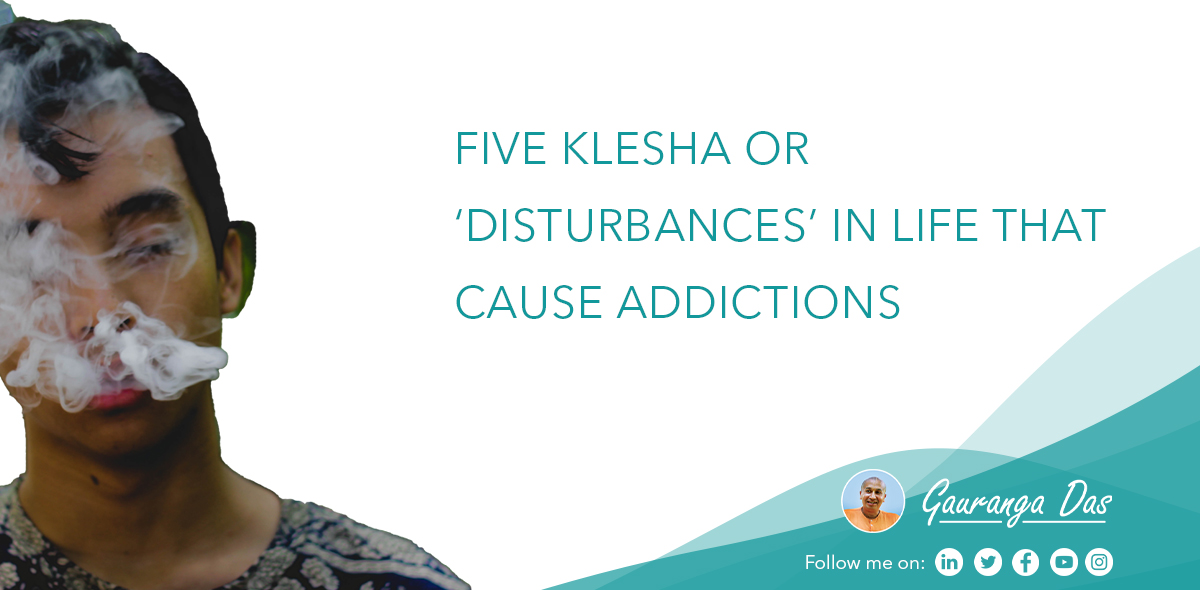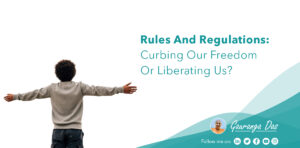One of my friends, every time he catches someone smoking would tell them that there are three benefits of smoking. The smokers hearing this often get bewildered. The first benefit he would state is, “If you smoke thief will never come to your house. Secondly, dogs will never bite you, and finally, you will conquer old age.” Many would stay frozen, amazed at his statements. Then, he would explain that “Because of smoking, you will keep coughing all night and thieves wouldn’t dare to break into your house. Then, because of old age and poor lungs, you will look sick and walk with a stick. Dogs would run away from you. Because of smoking, you will die young and there is no question of old age.”
Statistics reveal that 75% of Indian households have at least one family member who is addicted to intoxicants. As per WHO more than 7.2 crore Indians are addicted to some kind of drugs. Such is the state of addiction in this world. We need to transform into a healthy society free of addiction.
The classic definition of addiction is given as “a brain disorder characterised by compulsive engagement in rewarding stimuli despite adverse consequences.”
The principle of addiction can be understood from the perspective of the samskara or the impression of the mind. We develop a particular cycle of habits due to the accumulation of certain sets of impressions we create in due course of time. The cycle of addiction occurs when those impressions form a strong imprint in our psyche that makes us lose control over our actions.
The ancient texts of Patanjali Yoga Sutra state five types of disturbances ’klesa’ that causes addiction.
AVIDYA – Ignorance
Ignorance is considering the soul to be the body. Patanjali calls it “anitya suchi dukha nātma sunichya suchi sukātma” meaning, the body is unclean and is filled with misery but to consider the body to be our soul which is clean, eternal and blissful is the first klesha or disturbance. Such a misidentification is called avidya. So this is a very important principle because most of our habits and attempts to obtain pleasure are directed through the body and its senses. Anything that comes out of this body, be it tears, sweat, mucus, blood, urine, stool etc., all are unclean. Being attached to the body and thinking that one is this body causes great disturbance.
SMITHA – False Ego
Smitha means false ego. So, ignorance evolves into false ego or false identification. The soul starts identifying at different levels in a very seriously absorb manner. Smitha is identifying very specifically with great emotions. When one starts doing so, they identify themselves with such external expressions and become vulnerable to being affected easily by externalities.
We spend most of our lives on social media. Stats reveal that 100 million hours of video content is being uploaded on Facebook every day, and as per YouTube 1 billion hours. Most of the content showcase aggression, violence, entertainment that distracts the mind, etc. By the time one reaches the age of 18, he has already seen 16,000 instances of murder. With such impressions in our psyche, it is hard to overcome the impulses of destructive behavioural patterns.
ŚUKHANUCAI RAGA – Attachment followed by memories Raga is hankering or cravings for pleasure. To attain that pleasure one tries to remember some past experiences and that is referred to as sukhanucai raga by Patanjali. Habits are formed by remembering the last experience of pleasure. This ability to trigger past memories to create present experiences of pleasure leads to the development of attachment. As a result of attachment, memory promises to deliver the same pleasure if one repeats the behaviour. This way, one gets trapped by the memory preceding attachment that lies latent within the consciousness.
DVESHA – Aversion/Avoiding Pain
Raga or attachments to past memories not only derive pleasure but also pain. Such is the duality of this material world. Dvesha means avoiding pain.
Due to painful memories of the past, one tries to avoid them by seeking to resort to addictive patterns as a distraction from that pain. Last-minute exam terror, escaping from the childhood trauma of abuse by indulging intoxicants, engrossing in sports and entertainment, addiction to video games are some of the examples of people turning away from healing their pain and even suppressing them. This aversion causes a great disturbance.
ABINIVESHA – Fear of death
Patanjali states this fear of death, Abhinivesha is found across all classes of people including the greatest scholars who have acquired a tremendous amount of knowledge. Still, that accumulation of knowledge cannot guarantee that they can be free from the influence of death or the fear of death. This fear lies deep within our consciousness.
Once, a man interrupted Srila Prabhupada and told, “I have no fear. I don’t dear death. You are talking about Death! Death! Death! And trying to scare everybody. I have no fear of death.” Prabhupada in a calm voice responded, “At the red light signal while crossing the road, do you stop at the red light or not?” The man replied, “Yes.” “That means you are fearing death. Because id you have no fear, why you should look at the red light, green light?”
So these five klesha or disturbances are like the wind that blows over the Chitta. When the wind blows over the ocean of chitta, then the waves are created. So, these disturbances result in five mental states or vrttis. All of us have you somehow fallen under those five mental states at any given point in time.




